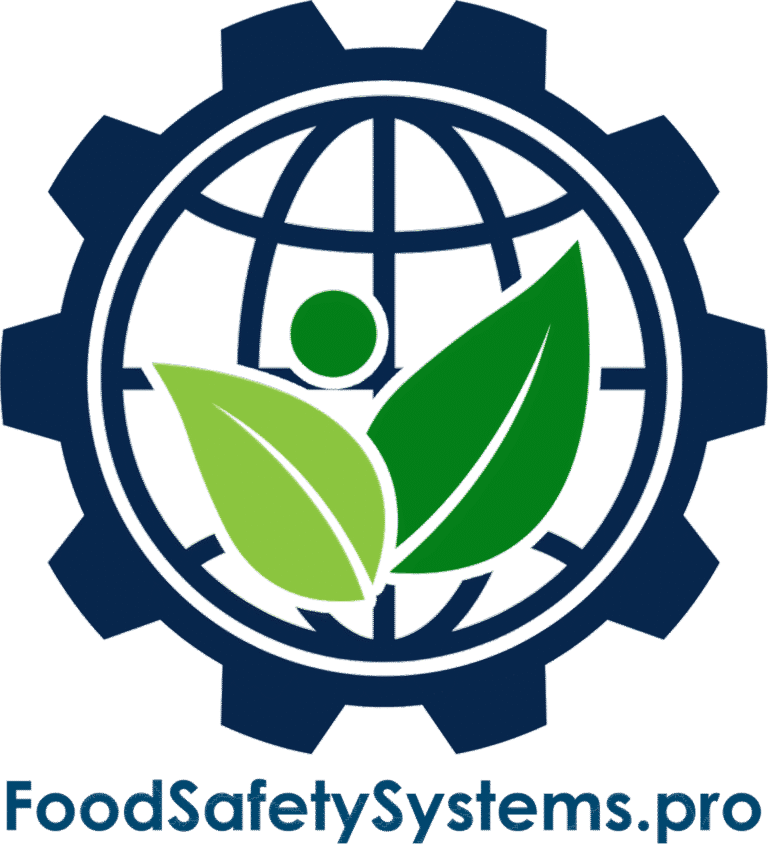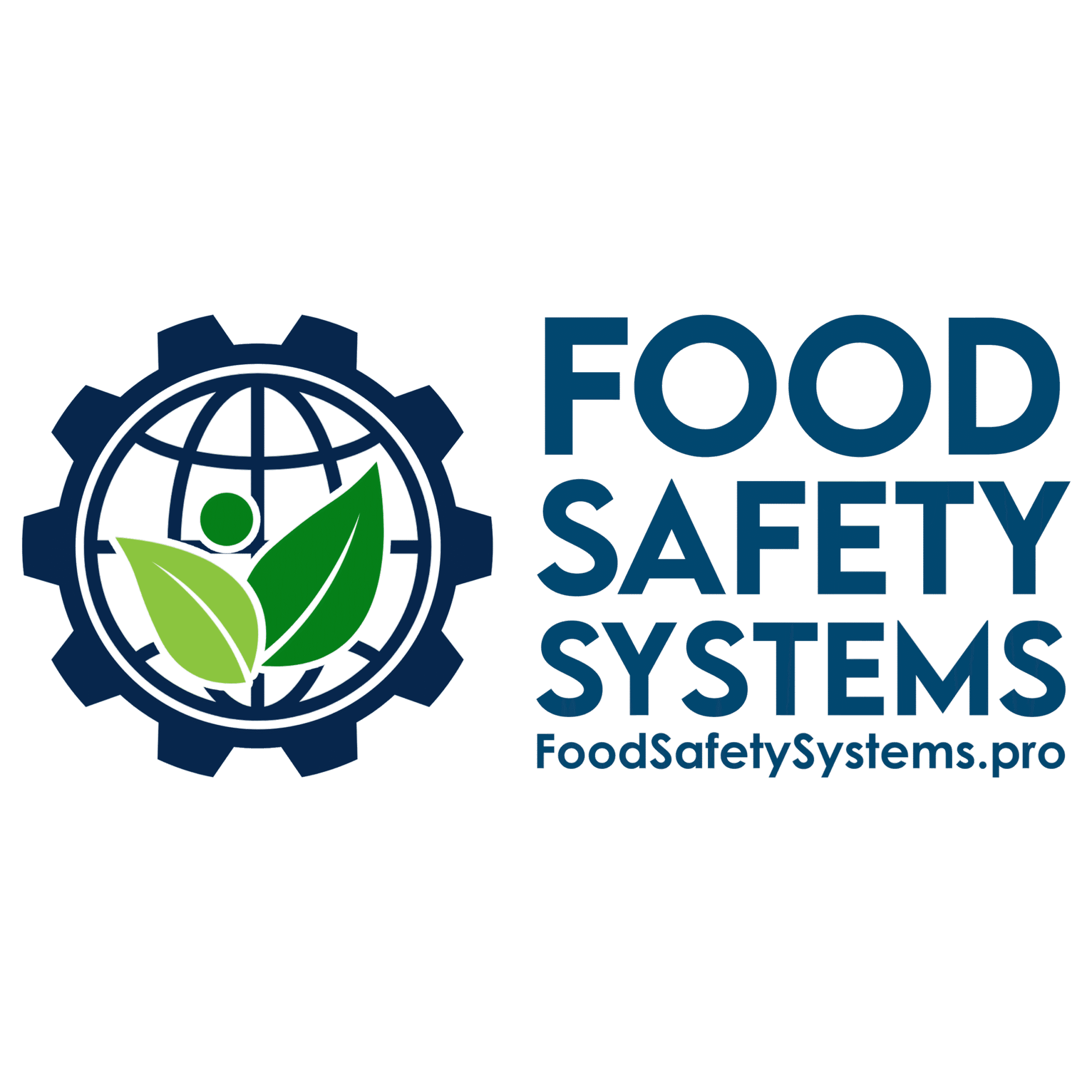Internal Audit Program
Aligned with SQF Code Edition 9 – System Element 2.10.1
Requirement Overview
SQF Code Edition 9, System Element 2.10.1, requires:
“The methods and responsibilities for scheduling and conducting internal audits to verify the effectiveness of the SQF System shall be documented and implemented. Internal audits shall cover all applicable requirements of the SQF Food Safety Code and be conducted at least annually.”
Internal audits are essential for validating that the SQF System is fully implemented, effective, and continuously improving. A strong internal audit program ensures your business identifies risks before external audits do.
Disclaimer: Food Safety Systems is not affiliated with or endorsed by the Safe Quality Food Institute (SQFI). This document is for internal use and guidance. For official requirements, visit www.sqfi.com.

Key Compliance Objectives
-
✓ Verify all elements of the SQF Code are implemented and maintained
✓ Identify non-conformances and improvement opportunities
✓ Ensure objective audit practices with qualified personnel
✓ Maintain comprehensive records of audits and actions taken
Step-by-Step Compliance Implementation
1. Establish an Internal Audit Program
-
Audit Program Must Include:
-
• An annual schedule covering all SQF Code modules
• Assigned competent auditors, independent of the audited area
• Documented audit criteria and scope
Evidence to Maintain:
-
• Signed annual audit plan
• Auditor competency records and training certificates
• Audit scope mapped to relevant SQF Code clauses
- • An annual schedule covering all SQF Code modules • Assigned competent auditors, independent of the audited area • Documented audit criteria and scope
- • Signed annual audit plan • Auditor competency records and training certificates • Audit scope mapped to relevant SQF Code clauses
2. Conduct Internal Audits
-
Audit Activities:
-
• Review of policies, SOPs, and records
• Physical inspections and operational observations
• Interviews with team members on key procedures
Evidence to Maintain:
-
• Completed audit checklists
• Interview notes and photographic records (if applicable)
• Summary reports with objective findings
- • Review of policies, SOPs, and records • Physical inspections and operational observations • Interviews with team members on key procedures
- • Completed audit checklists • Interview notes and photographic records (if applicable) • Summary reports with objective findings
3. Identify Non-Conformances and Improvement Areas
-
Key Reporting Requirements:
-
• Clearly categorize findings (e.g., major, minor, observation)
• Link each issue to specific SQF Code sections
• Include sufficient evidence or justification
Evidence to Maintain:
-
• Internal audit findings report
• Supporting documentation (photos, records, logs)
• Categorized non-conformance logs
- • Clearly categorize findings (e.g., major, minor, observation) • Link each issue to specific SQF Code sections • Include sufficient evidence or justification
- • Internal audit findings report • Supporting documentation (photos, records, logs) • Categorized non-conformance logs
4. Implement and Track Corrective Actions
-
Corrective Action Process:
-
• Assign a responsible person
• Define deadlines and follow-up requirements
• Conduct effectiveness checks after implementation
Evidence to Maintain:
-
• Corrective action request (CAR) forms
• Root cause analysis documentation
• Verification notes showing resolution
- • Assign a responsible person • Define deadlines and follow-up requirements • Conduct effectiveness checks after implementation
- • Corrective action request (CAR) forms • Root cause analysis documentation • Verification notes showing resolution
5. Review and Update the Audit Program Annually
-
Update Triggers:
-
• Completion of all scheduled audits
• Recurring findings or unresolved issues
• Organizational or regulatory changes
Evidence to Maintain:
-
• Annual review summary and sign-off
• Revised audit schedule or updated procedures
• Minutes from audit review meetings
- • Completion of all scheduled audits • Recurring findings or unresolved issues • Organizational or regulatory changes
- • Annual review summary and sign-off • Revised audit schedule or updated procedures • Minutes from audit review meetings
Common Audit Findings & Recommended Fixes
Audit Finding
Recommended Action
Internal audit not completed annually
Establish an annual calendar with due dates
Audit scope missing SQF requirements
Cross-reference plan with SQF Code checklist
Corrective actions not verified
Implement CAR tracking and follow-up documentation
Auditor not independent or trained
Train additional auditors and assign by department
| Audit Finding | Recommended Action |
|---|---|
| Internal audit not completed annually | Establish an annual calendar with due dates |
| Audit scope missing SQF requirements | Cross-reference plan with SQF Code checklist |
| Corrective actions not verified | Implement CAR tracking and follow-up documentation |
| Auditor not independent or trained | Train additional auditors and assign by department |
Auditor Verification Checklist
SQF auditors will typically:
-
• Review your internal audit plan and calendar
• Inspect completed audit reports and checklists
• Evaluate effectiveness of implemented corrective actions
• Verify auditor qualifications and role independence
Implementation Roadmap
Build Your Program
-
✓ Develop a comprehensive internal audit schedule
✓ Assign independent and trained auditors
Train and Validate
-
✓ Educate staff on audit procedures and roles
✓ Provide competency training for internal auditors
Operate and Monitor
-
✓ Conduct internal audits according to schedule
✓ Record findings and corrective action follow-up
Improve Continuously
-
✓ Analyze audit trends and system gaps
✓ Update audit plans and documentation annually
Why This Matters?
A well-executed internal audit program:
-
✓ Confirms the SQF System is functioning as designed
✓ Detects potential gaps before they result in non-conformances
✓ Prepares your team for successful external certification
✓ Reinforces a culture of compliance and accountability
Need Help Structuring Your Internal Audit Program?
Food Safety Systems offers:
-
✓ Editable internal audit SOP templates
✓ Sample audit checklists by SQF module
✓ Auditor competency evaluation forms
✓ Corrective action tracking logs and reports
AyaPortfolio Theme Powered by WordPress







